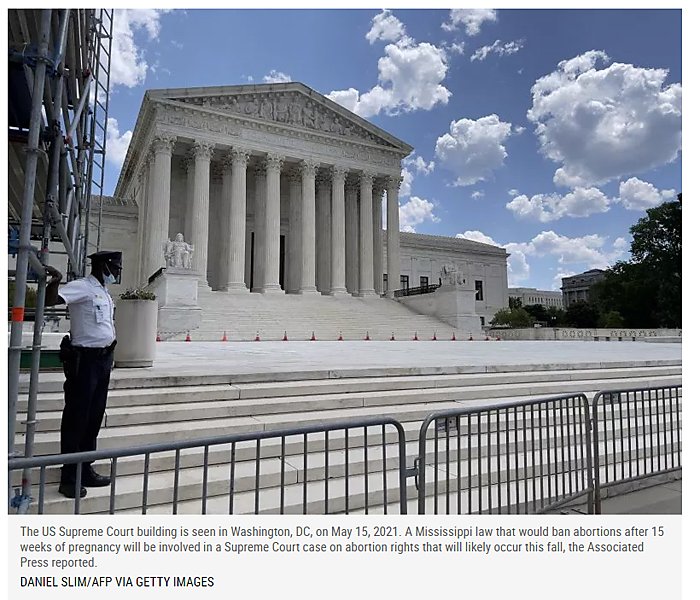It can be difficult to find bipartisan agreement on any subject these days. Everything from wearing masks to rebuilding roads has become ideologically divided. So it’s refreshing to find that some things can still unite us—like a pending Supreme Court case involving, of all things, a high schooler’s right to say “F**k cheer” on Snapchat.
In Mahanoy Area School District v. B.L., argued recently and with a decision expected by the end of June, more than 100 groups from across the political spectrum and nine states filed briefs supporting a teenager who sent the offending message while hanging out at a convenience store one weekend. “Snaps” are designed to disappear within 24 hours, but someone took a screenshot of this one, showed it to a cheerleading coach, and now it’s the most important case on student speech rights in decades.
The school suspended Brandi Levy—identified by her initials because she was a minor when the lawsuit began—from her cheerleading team for an entire year, even though she uttered the words on her own time, away from school. Her case asks whether schools should have the same power to punish speech outside school that they have in a classroom or cafeteria. Pointing to the internet’s wide reach, the district says it should be able to regulate any student speech addressed to a classmate or about school affairs, regardless of where it occurs.
Levy’s unlikely allies before the Supreme Court include the ACLU (which represents her), Republican-led states, several of the nation’s leading civil rights organizations, Students for a Sensible Drug Policy, former school administrators, a conservative parental rights organization, liberal and conservative women’s groups, religious liberty organizations, college athletes and the student-led gun-control advocates March for Our Lives. (My own Cato Institute, along with Pacific Legal Foundation and P.J. O’Rourke, filed a brief stressing the danger that school principals and boards may seek to silence those with whom they disagree.) One would be hard pressed to identify any other case featuring such a supporting cast.
One additional member of that list bears mention: Mary Beth Tinker, who as a 13-year old in 1965 wore a black armband to school to protest the Vietnam War. Her case eventually led the Supreme Court to rule that students have First Amendment rights even in school, and that Tinker’s armband was protected speech. But the Court also gave authorities leeway to suppress speech in school that’s likely to cause “substantial disruption.”

That’s a stark exception to the freedom of speech that holds outside of schools. The Court has ruled the First Amendment’s “bedrock principle” to be that “government may not prohibit the expression of an idea simply because society finds the idea itself offensive or disagreeable.”
So why has such an array of mismatched bedfellows gotten behind Levy? You might say that everyone’s afraid of the principal. Conservatives worry that “politically correct” administrators will punish students for expressing their beliefs about abortion or homosexuality, their support for the Confederate (or even American) flag or their belief in the right to bear arms. Juvenile justice and civil rights organizations worry that racial minorities will be disproportionately punished under a vague standard. Parents’ groups argue that expanding school authority will interfere with their own rights to decide how to raise their children. Activists and athletes worry that schools will condition participation in extracurricular activities on agreement not to criticize coaches—even when they’re abusive.
These fears aren’t unfounded. Lower courts have upheld discipline of students for wearing an L.A. Lakers jersey, advocating against abortion, wearing a shirt that says “we are not criminals” and criticizing a coach for physical and emotional abuse. Officials may legitimately need to censor in-school speech to maintain a learning environment, but extending that censorial power beyond the school’s walls would mean that young people don’t have full free speech rights anywhere.
Virtually everyone in the Mahanoy School District case, including Levy herself, agrees that schools should be able to regulate some speech outside the school if it has serious effects within school—in particular, bullying, harassment and threats of violence. But ordinary First Amendment standards permit regulation of such conduct. And the broad alliance on Levy’s side agrees that schools don’t need authority to punish off-campus speech that isn’t harassing, bullying or violent, but merely “inappropriate” or “profane.”
The fact that so many voices from across the political spectrum have come together underscores perhaps the most fundamental point of all: the First Amendment isn’t a progressive or conservative right, a Democratic or Republican right. It’s an American right. On that, at least, we should be able to agree.
